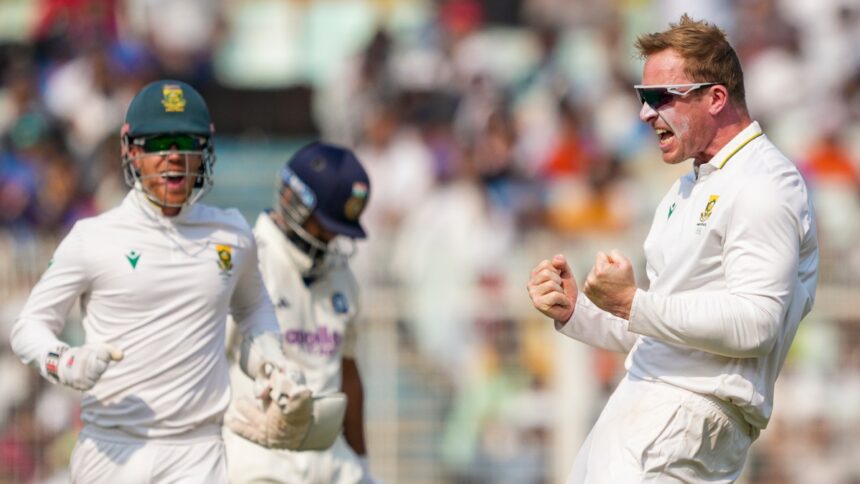Guwahati: In a significant return to India after a decade, Simon Harmer proved the selectors made a wise choice by bringing him back to the national side for sub-continent Test tours. He led South Africa to a historic 2-0 series victory against India, following a remarkable performance in Pakistan. Harmer was the standout bowler for the Proteas on Day 5 in Guwahati, achieving a six-wicket haul that elevated his overall match tally to nine and his series total to 17—setting a record for the most wickets by a South African bowler in a Test series in India.
Harmer surpassed the long-standing record held by Dale Steyn, who took 15 wickets during the 2008 tour. Paul Adams is next on the list among spinners, with 14 wickets from the 1996 tour. Overall, the record for the most wickets by an overseas spinner in a bilateral Test series in India is held by Australia’s Richie Benaud, with 29 wickets.
Notably, Harmer also eclipsed Steyn’s total of 26 wickets in Tests played in India, recording 27 wickets in just eight innings. Steyn achieved his tally in nine innings. Morne Morkel, the current Indian bowling coach, ranks third with 21 wickets in 13 innings.
Most Wickets by a South African Bowler in a Test Series Against India
- 17 – Simon Harmer – 2025 (4 innings)
- 15 – Dale Steyn – 2008 (5 innings)
- 14 – Paul Adams – 1996 (5 innings)
- 14 – Imran Tahir – 2015 (7 innings)
- 12 – Marco Jansen – 2025 (4 innings)
Most Test Wickets by a South African Bowler in India
- 27 – Simon Harmer (8 innings)
- 26 – Dale Steyn (9 innings)
- 21 – Morne Morkel (13 innings)
- 18 – Makhaya Ntini (18 innings)
- 17 – Andrew Donald (17 innings)
Harmer, with over 1,000 first-class wickets, displayed exceptional skill that troubled the Indian batsmen, who struggled against his spin, bounce, and experience. This series marked South Africa’s first win in India in 25 years, while India faced their second home series whitewash in just three attempts. The team will need to reflect on their performance ahead of their next Test series against Sri Lanka in 2026.










